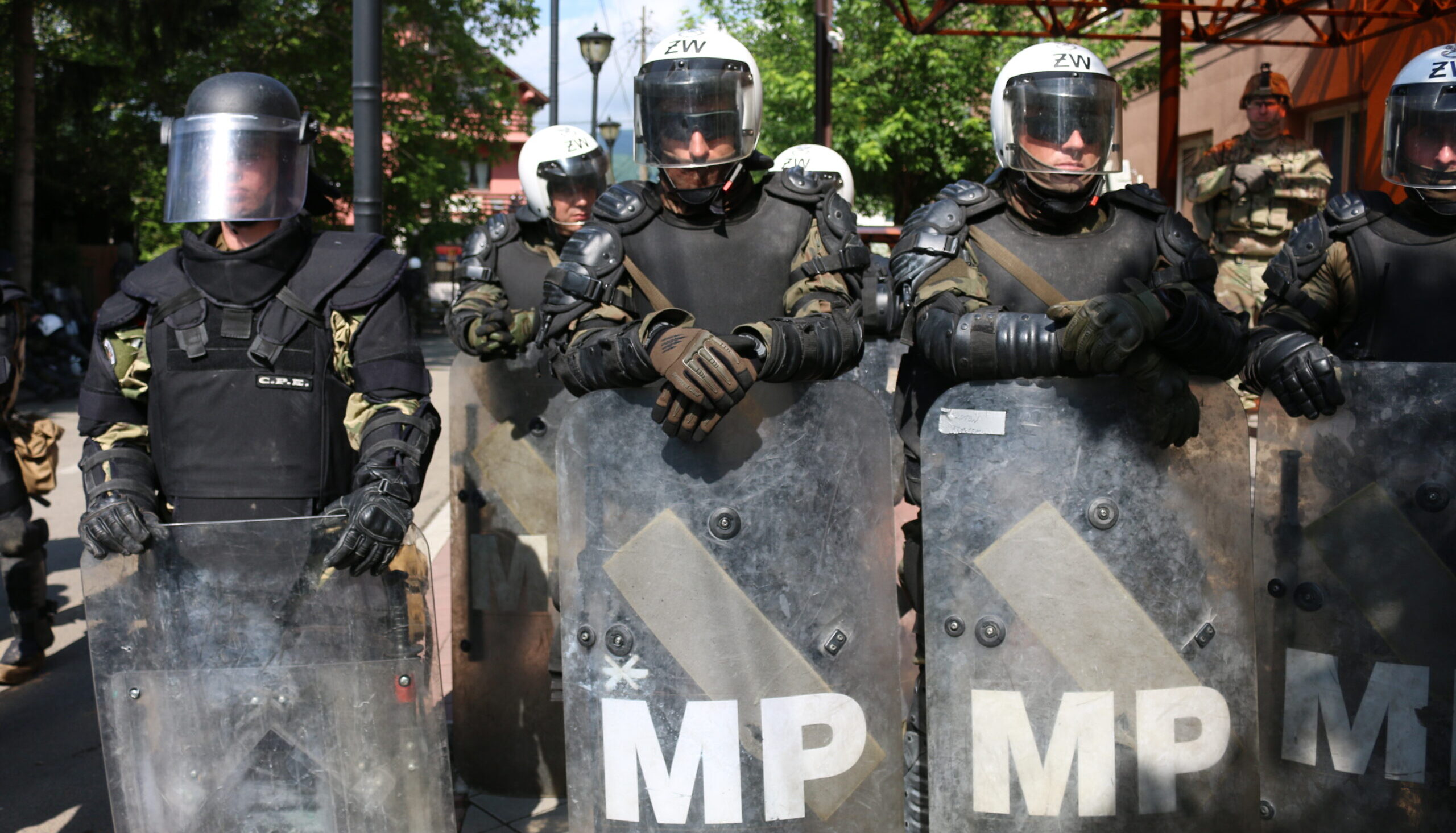The melee of riot shields and baseball bats fought between Serb protesters and Nato peacekeepers this week has come at a delicate time for the American-European alliance. With the West focused on Ukraine, such violent clashes, in what is effectively a Nato protectorate acquired in easier times, are an unwelcome development for an unstable region — and for the overall Nato strategy.
The immediate spark was Kosovo Prime Minister Albin Kurti’s attempt to install ethnic Albanian officials in the ethnic Serb-majority North Kosovo region. The local Serbs had boycotted the election, with less than 4% of the region’s population taking part in voting. Yet, in justifying his move, Kurti nevertheless insisted that “it is the right of those elected in democratic elections to assume office without threats or intimidation”, dismissing the protesters as “Serbian mobs and fascist militia”.
But unfortunately for Kurti, a divisive pan-Albanian nationalist, Nato disagreed with this assessment. To his chagrin, the United States immediately sanctioned his government, ejecting Kosovo from the forthcoming Defender 23 military exercise, pausing diplomatic visits, and freezing attempts to further integrate Kosovo into Nato and EU structures, or achieve wider international recognition.
In a statement of unprecedented criticism, US Secretary of State Antony Blinken announced that “the United States strongly condemns the actions by the Government of Kosovo to access municipal buildings in the north of Kosovo by force, actions it took against the advice of the United States and Kosovo’s European partners” which “have sharply and unnecessarily escalated tensions”.
Where America led, the rest of Nato swiftly followed: Britain and France similarly condemned Kurti’s actions, with France and Germany demanding new elections in northern Kosovo to resolve the crisis. Initially unrepentant, Kurti accused Kosovo’s Western patrons of “appeasing” Serbia while dismissing their response as “out of proportion and unfair” and insisting that “the violent mob has to leave — either by going to prison or to Serbia”.
Ultimately, though, Kurti has overreached at a perilous moment. Vladimir Putin has repeatedly cited Nato’s 1999 carve-up of Kosovo from the then-Yugoslavia as both a great historical injustice and a precursor for his own supposed humanitarian intervention in the Donbas. Back in 2014, the Kremlin explicitly cited “the Kosovo precedent” for the Crimea referendum on unification with Russia, in which 95.5% of the population purportedly backed the annexation.
As Nato attempts to shore up international support for Ukraine’s continued legal ownership of the Crimea and Donbas, Kurti’s reckless stirring up of the unresolved Kosovo question came at precisely the wrong time. If military intervention to redraw Europe’s borders was acceptable then, Moscow can argue, why not now? Similarly, if Kosovo can be carved from Serbia to suit the national aspirations of its Albanian majority, why should its Serb minority remain in a statelet whose existence they do not recognise, forced to accept officials for whom they did not vote?
In drawing unwanted attention to these essentially unresolvable questions, Kurti angered his Nato patrons. Following a phone call from the American ambassador, Kurti seems to have bowed to the inevitable, this morning agreeing to new elections in Kosovo’s north. For Nato, the Kosovo question is an occasionally painful hangover from its period of unchallenged military power a generation ago. The best the West can achieve, at least for now, is to keep the centuries-old ethnic conflict frozen.
As the EU’s chief diplomat Josep Borrell remarked in a statement condemning Kurti’s actions, “We have too much violence in Europe already today — we cannot afford another conflict.” His knuckles sharply rapped by a West grappling with Ukraine’s more important challenge, Kurti has learned the limits of his country’s qualified independence.











Join the discussion
Join like minded readers that support our journalism by becoming a paid subscriber
To join the discussion in the comments, become a paid subscriber.
Join like minded readers that support our journalism, read unlimited articles and enjoy other subscriber-only benefits.
Subscribe